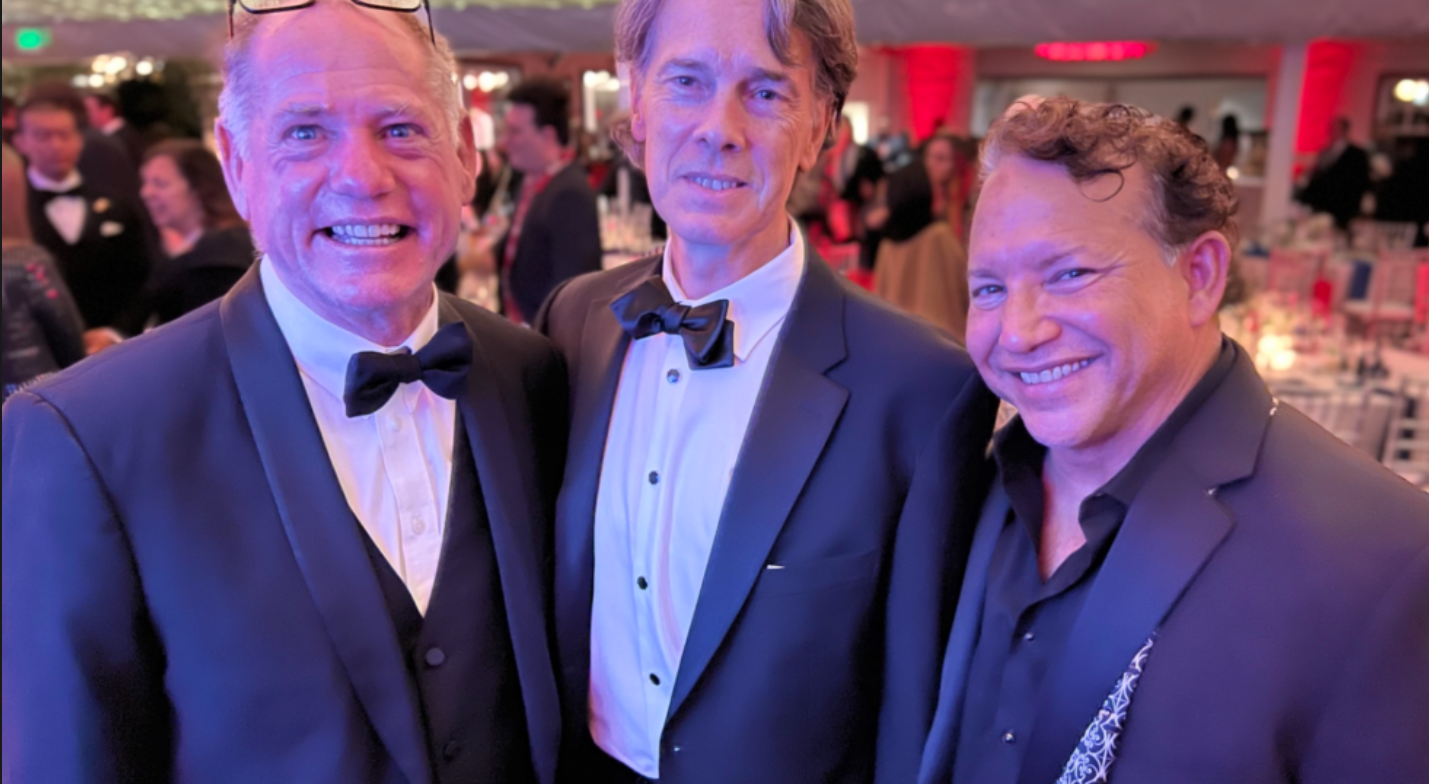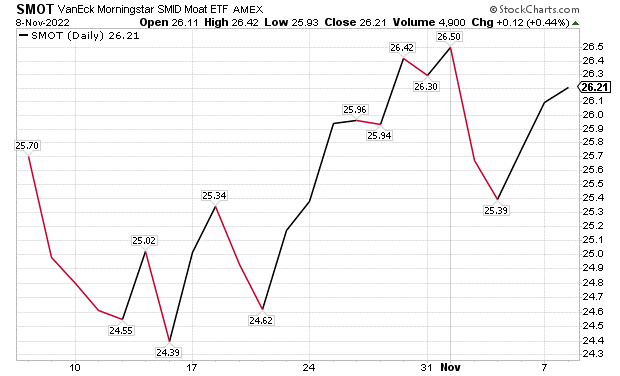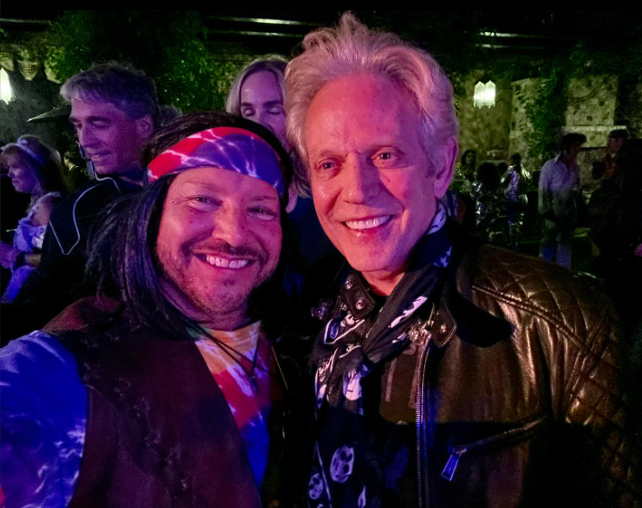My Three Pillars to Live By
- My Three Pillars to Live By
- ETF Talk: Seeking Shelter Behind Economic Moats
- Welcome to the Hotel California
- Good News, Bad News
***********************************************************
My Three Pillars to Live By
A few years ago, a friend asked me to describe my personal “ethos” with just a few words.
Now, judging by that question, you can tell that I hang out with some pretty smart friends. And in this case, I knew my answer needed to be appropriately thought out to satisfy my friend’s curiosity. At first, I thought this task would be difficult. Yet after just a brief period of reflection, I answered with the following three words…
Focus. Integration. Celebration.
Naturally, my friend demanded I amplify this answer, and so I went about explaining these “three pillars” of my personal ethos so that each concept would be simple and easy to understand. So, with your permission, I would like to do the same here.
Focus. The first pillar here is the most essential, as it also serves as a basis for all information processing, and for the application of the two other pillars of my ethos. The term focus here means much more than just concentration. By focus, I mean focus in the wider, philosophic sense. Perhaps a quote here from my favorite philosopher and my favorite novelist, Ayn Rand, will explain what I mean by philosophic focus:
“In any hour and issue of his life, man is free to think or to evade that effort. Thinking requires a state of full, focused awareness. The act of focusing one’s consciousness is volitional. Man can focus his mind to a full, active, purposefully directed awareness of reality — or he can unfocus it and let himself drift in a semiconscious daze, merely reacting to any chance stimulus of the immediate moment, at the mercy of his undirected sensory-perceptual mechanism and of any random, associational connections it might happen to make.”
So, when I say “focus” is the first pillar of my personal ethos, I mean it in this sense. I mean it in the sense that whatever it is I am doing, whether it is writing, speaking, analyzing companies, reading, composing and playing music, horseback riding, weight training, martial arts, combat marksmanship, driving a race car, walking a dog or just petting my cat, I do it in a state of full focus. I do it with the full, volitional and conscious awareness of reality — in the moment.
You’ve no doubt heard about the importance of “living in the moment,” as it has become somewhat of a cliché in the self-help movement. So, let’s avoid this cliché, and just say that living in the moment requires that you live each moment in full focus.
Integration. The second pillar of my ethos comes after you’ve focused your mind on the facts and sensations of reality. Through the process of mental integration, you can categorize the facts, sensations and feelings you’ve experienced in that state of full focus, and you can begin determining what they all mean and how they fit into your broader, and deeper, philosophic premises such as the things you value.
For example, let’s say you focus your mind on something that is on the surface mostly a physical pursuit: weight training. Yet is it mostly a physical thing? While the actual performance of the movements might be primarily physical, what you’ve likely already integrated before you even decide to begin weight training are the facts that challenging your muscles with progressive resistance loads is a good thing for your physical well-being.
Indeed, the integration of higher-order concepts of “well-being” requires a long chain of philosophic integration that has to do with the value you place on your existence, your health, your appearance, the maintenance of your functional ability, etc. The wider point here is that the ability to focus on facts and integrate those facts into your philosophic matrix is the necessary second pillar of a rational ethos, and it’s one you must be consciously aware of, if you are going to engage in the third pillar of this ethos.

Your editor celebrating life black-tie style with artist Michael Newberry (far left) and philosopher Stephen Hicks (middle) at the Atlas Society Gala, 2021.
Celebration. Once you’ve focused on reality and integrated those facts with your personal worldview, i.e., your personal philosophic premises, then, and only then, can you rationally indulge in the most pleasurable pillar — celebration. For me, celebration is the result of the focused integration of the concretes of reality and what they represent in my life. Staying with the weight training example, I know that a focus on facts means I need to weight train to stay in good physical shape.
Staying in good physical shape is a value to me because I’ve integrated the virtue of good health and the absence of disease in my life as rational values for me to pursue. And despite being on the losing side of my fifties, I am for the most part in excellent physical condition, largely free of disease, strong, flexible and fully functional. It is this combination of focused integration that permits me to celebrate this circumstance.
You see, when you live a life in full focus, and one in which you integrate the ideas and values that really matter to you, then and only then can you rationally celebrate your existence. It is this celebration, in all its glorious forms, that make life worth living.
Whether that celebration is the pleasure of watching your children grow up, or whether it’s staring into the eyes of the person you love most and feeling that love come right back to you or whether it’s something as simple as performing a set of intense barbell curls — when you live a life of focused integration, you can justly celebrate life in all of its forms.
For me, the three pillars of focus, integration and celebration comprise the basis of my personal ethos. And thanks to my friend’s question some years ago, these three pillars also represent the consistent themes running through my lifestyle website and podcast, Way of the Renaissance Man.
If you want to hear more about the various ways I and others focus, integrate and celebrate life, I invite you to check out the articles, interviews and podcasts available right now at WayoftheRenaissanceman.com.
***************************************************************
ETF Talk: Seeking Shelter Behind Economic Moats
A key to success is to fortify one’s business from economic assault the way a feudal lord defends his castle from rival attacks.
That is, not only do you need to produce something that fulfills a need in the market to be successful, but you also ideally should try to build a “moat” around your product to defend it from enemies. Now, the moats in question are not those that you see around castles in Europe and elsewhere.
Rather, I am talking about what Warren Buffet calls “an economic moat,” which he defines as unique advantages, such as network effects, switching costs, intangible assets and so on, that a business can use to remain competitive in an ever-changing marketplace. The presence of one or more moats allows a company to defend its market shares and profits from rival companies.
On the other hand, companies that lack such advantages often end up either acquired by a leaner, meaner enemy, or quickly disappear from the economic stage.
One way to generate profits from “moats” is through an exchange-traded fund (ETF), such as VanEck Morningstar SMID Moat ETF (BATS: SMOT).
As its name suggests, SMOT tracks an index of small- and mid-cap companies with sustainable competitive advantages. These companies are identified through the use of qualitative and quantitative factors and are divided into narrow moat companies (who are projected to have a competitive advantage for at least 10 years) and wide moat companies (who are believed to have an advantage for 20 years).
After the bottom 3% based on float market capitalization are excluded, the stocks are then sorted by momentum so that only the top 80% remain. From there, the fund’s managers only select stocks with the lowest current market price and fair value ratio for inclusion in the portfolio. While the index is equally weighted, it is also divided into two sub-portfolios that target 75 companies each.
This ETF’s top holdings include Ameriprise Financial Inc. (NYSE: AMP), Rockwell Automation Inc. (NYSE: ROK), Verisign Inc. (NASDAQ: VRSN), Paccar Inc. (NASDAQ: PCAR), Graco Inc. (NYSE: GGG), Wesco International Inc. (NYSE: WCC), Ingersoll Rand Inc. (NYSE: IR) and State Street Corp. (NYSE: STT).
As of Nov. 8, SMOT had risen 0.44% for the past day but slid 1.09% for the last week. The ETF currently is up 4.93% for the past month. Due to the ETF’s recent launch, performance data stretching over a longer time period is not available.

Chart courtesy of www.stockcharts.com
The fund has amassed $12.25 million in assets under management and has an expense ratio of 0.49%.
In short, while SMOT does provide an investor with access to economic moats, this kind of ETF may not be appropriate for all portfolios. Thus, interested investors always should conduct their due diligence and decide whether the fund is suitable for their investing goals.
As always, I am happy to answer any of your questions about ETFs, so do not hesitate to send me an email. You just may see your question answered in a future ETF Talk.
*****************************************************************
In case you missed it…
Welcome to the Hotel California
So I called up the Captain
“Please bring me my wine”
He said, “We haven’t had that spirit here since 1969”
— Eagles, “Hotel California”
Some nights in one’s life are just better than others. And then there are some nights that are epic.
This past Saturday, I experienced one of those epic nights when I attended a Halloween party at a friend and colleague’s home in Bel Air, California. Now, in addition to this being the most magnificent home I’ve ever set foot in, the hospitality was equally magnificent. Food, drink, holiday decorations — all supremely delicious and exquisitely detailed for the All Hallows’ Eve revelry.
Yet, what really made this night epic was the performance from iconic musician, member of the Rock & Roll Hall of Fame and lead guitarist for the Eagles, Don Felder.
Felder is perhaps most famous for writing the main riff and the melodically poetic and unforgettable guitar solo to the song, “Hotel California.” Indeed, as I write this, you almost certainly now have that solo in your head. That’s how iconic Felder’s work is and how influential he’s been in the history of rock and roll.

Your editor in his “capitalist hippie” costume, alongside the famed Don Felder.
Watching Felder up close and personal (literally a few feet away) was nothing short of spectacular, and it’s one of those life moments that I will be talking about and remembering with an ultimate sense of joy and wonderment for the rest of my days.
I bring this evening to your attention this week in The Deep Woods, because it’s of critical importance to any life well lived to be able to have many peak experiences.
Now, peak experiences are different for everyone. The birth of a child, fulfilling a long-sought-after career achievement or a profound religious experience all fit into the category of peak experiences. And while you may not consider a private performance by a member of the Eagles a peak experience (although I can’t imagine why not), the important thing is that one strives to have these experiences on a somewhat regular basis.
You see, to me, life is about celebration.
Celebration that you are here and that you are a thinking entity capable of knowing how lucky you are as a sentient member of the universe. Just that realization alone is enough to be grateful, but then knowing you also can have the sublime feelings that come with peak experiences should make your sense of gratitude for existence overflow with a sense of awe and adventure.
Of course, life also is difficult. There’s pain, suffering and ultimately, you will no longer be attending the party. Worse yet, you will have to leave the party while the party is still going on.
Yet just because we know life is finite doesn’t mean we shouldn’t celebrate. Indeed, it’s precisely because life is finite that we must cultivate the peak experiences and moments that make our days on earth worth the struggle.
As “Hotel California” reminds us, “you can check out anytime you like, but you can never leave.”
I take that lyric to mean that, although we can choose to “check out” and live a life unexamined, we are still here and we exist right now, and we can “never leave” the responsibility of thinking and acting.
And because we have that life, and that choice, why not choose to live it inspired, with a sense of purpose and with a goal of basking in peak experience?
I know which way I want my life to go, and if you’re reading this, I suspect you do, too.
So, let’s all check in to the Hotel California, because it’s a lovely place, such a lovely place.
*****************************************************************
Good News, Bad News
“Winning the election is a good-news, bad-news kind of thing. Okay, now you’re the mayor. The bad news is, now you’re the mayor.”
–Clint Eastwood
The legendary film star and director has lived a life that’s brought the world incalculable entertainment through some of the greatest and most unforgettable characters in the history of cinema. Yet even for “Dirty Harry,” being the mayor of the beautiful town of Carmel-by-the-Sea, California, was a challenge. And as Eastwood makes clear in the above quote, getting what you want in life is most often a good-news, bad-news proposition.
Wisdom about money, investing and life can be found anywhere. If you have a good quote that you’d like me to share with your fellow readers, send it to me, along with any comments, questions and suggestions you have about my newsletters, seminars or anything else. Click here to ask Jim.
In the name of the best within us,

Jim Woods


